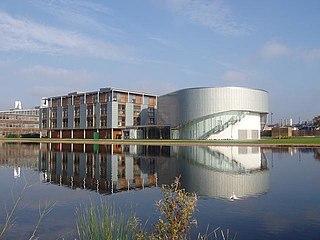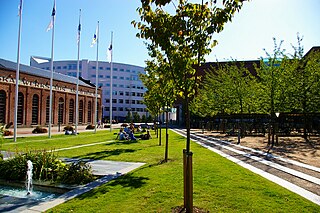History
BI Norwegian Business School was founded by Finn Øien on June 1, 1943, as a private evening school in "trade and office subjects". Together with his partner, Jens Rosef, Finn Øien was responsible for administration, teaching, and journals, while Rosef was in charge of the accounting and auditing consultancy department. The following year, Nils Skott joined as a third owner, with responsibility for the rationalization department.
1943-1979
The first course in business administration at BI was conducted in the evenings and lasted for three months. From 1946, the school established a full-time economics study program that lasted for two years. BI developed as a provider of short, independent courses in accounting, industrial bookkeeping, machine bookkeeping, and corporate statistics.
In 1968, BI was reorganized from a privately-owned corporation to a self-owned foundation. In 1969, the Norwegian Parliament decided to provide state funding to BI.
In the 1960s and early 1970s, the entire higher education system in Norway was undergoing several changes. There was a significant increase in the number of students, and several regional colleges were established. In the 1960s and 1970s, BI established a regional network of local schools offering studies in business administration.
1980-2000
In the 1980s, there was a high demand for economic administrative education in Norway. BI experienced a significant increase in students, and its revenue grew tenfold. In 1986, over 12,000 applied to study business administration at BI.
During the 1980s, the management at BI set the goal to develop BI as a specialized university. Academicization and increased efficiency were key aspects, and in 1983, BI hired its first professors. Research activity was also strengthened during this period.
In 1985, BI decided to establish a national network of local branches. Former partner schools were either being closed down or incorporated into BI's organization. That same year, BI obtained the right to award the title of Master of Science in Business (Siviløkonom), which was crucial for BI's recognition as a business school.
In the 1990s, the ambition was to make BI a leading business school in Europe. In 1993, BI established its doctoral program in collaboration with the University of Oslo and Copenhagen Business School. Later on, BI also established educational programs in Shanghai, China, and in 2000, it did the same in Lithuania.
2001 →
In 2005, BI's campuses in Sandvika, Schous plass, and Ekeberg were consolidated into a new campus in Nydalen, Oslo.
At the same time, it was decided to focus BI's studies around business and economics, marketing, strategy, management, and administration. The number of campuses decreased from twelve to three. The number of bachelor's programs was also reduced from 19 to 13, and the number of Master of Science programs from 8 to 5.
In 2014, BI became the first business school in Norway to achieve the three most prestigious international accreditations, EQUIS, AACSB, and AMBA. With this, BI joined the one percent of business schools worldwide that can be referred to as a "Triple Crown" school.
In 2022, BI appointed Finnish Karen Spens as the new President. With this, she became BI's first female and international rector.
Study programmes
BI Norwegian Business School offers education at all levels, including bachelor's degree, master's degree, doctoral degree, and postgraduate education. The education covers areas such as economics, finance, management, marketing, communication, HR, real estate, law, data, and digital business. BI also offers an MBA program in collaboration with Fudan University School of Management, China.
Student Association
BISO, BI Student Organization, is the student association for all students at BI. BISO develops student politics and works on important student issues. They represent the students in various collaborative forums with BI and organize welfare measures and events such as company presentations, social gatherings, and the Fadderullan (orientation program) at the beginning of the academic year.
BISO has multiple subject associations, as well as various interest groups. In addition, BISO is a co-owner of StudConsult, a consulting company operated by students affiliated with BI Norwegian Business School.















